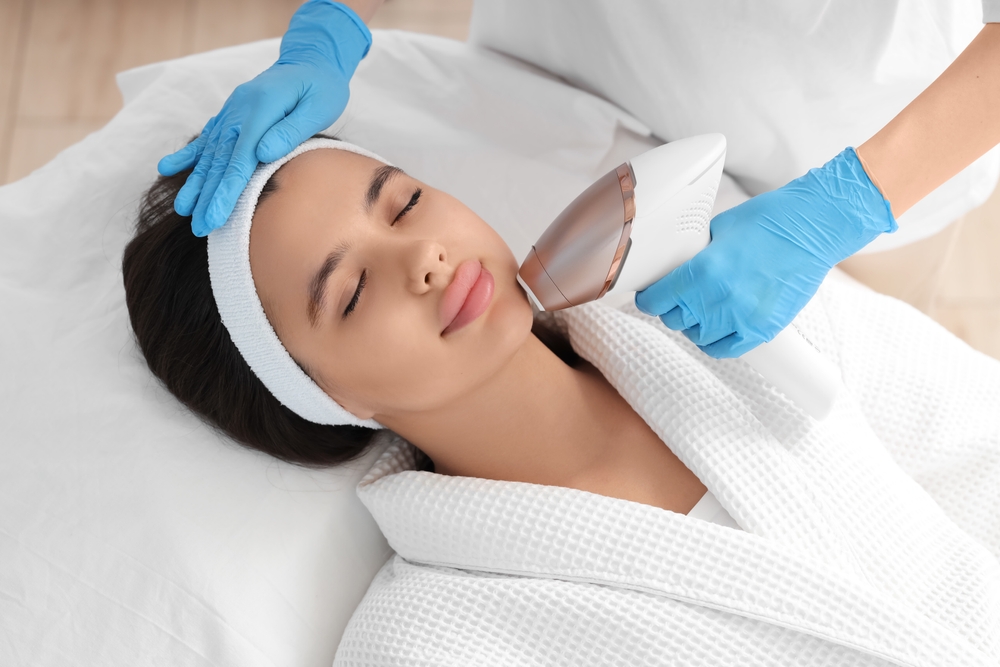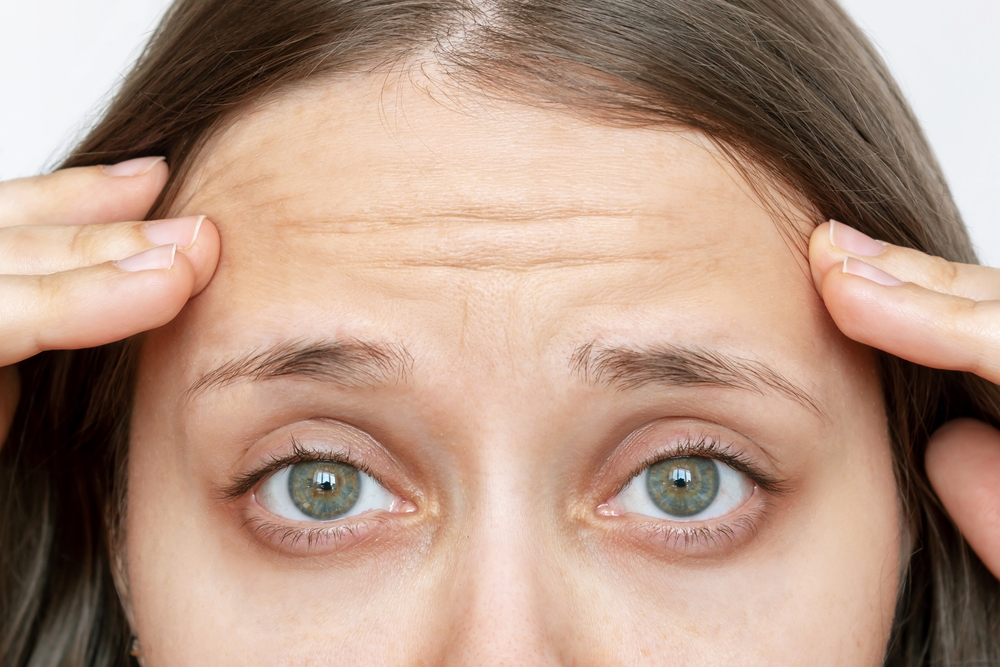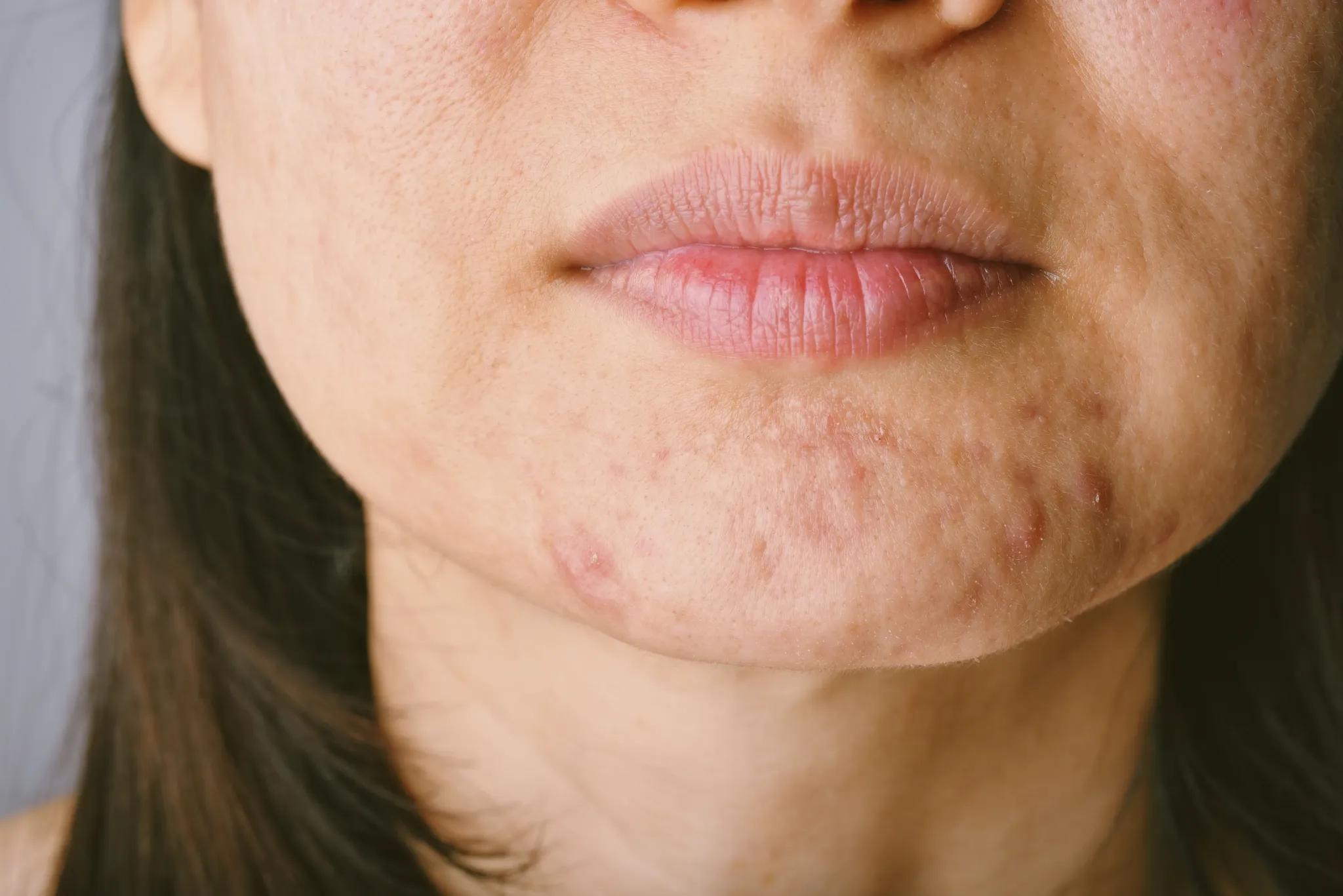
Everything You Need to Know About IPL Laser Treatment
In the evolving world of advanced skincare, IPL laser treatment has become one of the most sought-after solutions for those looking to improve skin clarity,
Our unique approach enables us to look beneath the surface of the skin and simulate your results prior to treatment. Learn more >
Results simulator now available. Learn more >

We’ve all faced the temptation of popping zits, hoping for instant relief from an unsightly blemish. But is it really the best solution? While it might seem like a harmless act, improper techniques can lead to scarring, infections, or even worsening breakouts. This blog dives deep into everything you need to know about managing pimples safely and effectively.
From understanding the risks of pimples popping to learning professional techniques for pimple extraction, this guide covers it all. We’ll also explore alternatives like skincare treatments and concealing methods to keep your skin looking flawless. Whether you’re a frequent pimple popper or simply curious about maintaining clearer skin, this guide provides actionable insights to achieve your skin goals.
The temptation to pop a pimple often comes from the belief that it will speed up healing or make the blemish less noticeable. However, popping zits and blackheads without proper technique can lead to more harm than good. When pressure is applied incorrectly, it can force bacteria, oil, and debris deeper into the skin layers. This not only prolongs the healing process but also increases the risk of developing secondary infections and cysts.
Another concern is scarring. Pimples, especially those that are not fully formed, are more likely to leave marks when popped prematurely. The skin’s natural healing process can also be disrupted, leading to post-inflammatory hyperpigmentation (PIH). PIH is especially common in those with darker skin tones, where the skin produces excess melanin in response to trauma.
In addition to scarring, improper popping can widen pores, making them more prone to future clogging. The cycle of repeated popping can result in a long-term impact on the skin’s texture and appearance. By understanding these risks, individuals can make more informed choices about their skincare practices and opt for safer, non-invasive alternatives.
Knowing the difference between blackheads and whiteheads can guide you toward safer and more effective skin care practices. Blackheads are open clogged pores filled with oil and debris that oxidize when exposed to air, turning them dark. Zit popping blackheads is relatively safer if done correctly and with sterile tools, but doing it improperly can lead to enlarged pores or scarring.
On the other hand, whiteheads are closed comedones with a thin layer of skin trapping oil and bacteria beneath the surface. These are more prone to infection and scarring if popped without care. For stubborn whiteheads, professional extraction at a cosmetic clinic is often the safest approach. The key is to address the root causes of acne rather than relying solely on popping.
Not all pimples should be popped, but there are cases when it’s relatively safe. Look for signs like a white or yellow center and no redness or inflammation surrounding the area. This indicates that the pimple is “ripe” and ready to be extracted. Avoid touching zit popping blackheads or inflamed acne, as these are more likely to cause complications.
When popping a pimple, ensure your hands and tools are sanitized, and always follow proper aftercare practices to prevent scarring or infections. For persistent or problematic acne, consider exploring professional treatments for better long-term results.
Professional treatments like Cosmetic Clinics offer advanced solutions for acne and skin discoloration. One standout option is Broadband Light (BBL) therapy, which uses light energy to target acne scars and pigmentation. This innovative treatment stimulates cell regeneration, leaving your skin smoother, clearer, and more even-toned.
Professional pimple extraction involves a precise process, including cleansing the skin, applying antiseptic solutions, and using sterilized tools to safely remove impurities. These steps minimize the risk of scarring and infection compared to at-home methods. Professionals can also recommend customized aftercare to promote healing and prevent further breakouts.
Proper preparation is key to safely popping a pimple and minimizing the risk of complications.
If you’ve succumbed to the temptation of popping zits and blackheads, proper aftercare is crucial to minimize damage and promote healing. The steps you take immediately after extraction can make all the difference in preventing infections, scarring, or further irritation:
If you’re tired of recurring breakouts or the marks left behind after popping pimples and blackheads, professional treatments offer effective, long-term solutions. At Cosmetic Clinics, BBL (Broadband Light) therapy is a standout option for addressing acne scars, redness, and pigmentation. This advanced treatment uses light energy to target deeper layers of the skin, stimulating collagen production and cell regeneration.
BBL therapy not only improves the appearance of post-acne marks but also enhances overall skin texture and tone. For individuals frustrated by blemishes and the aftermath of popping zits blackheads, BBL provides a non-invasive, highly effective option with visible results over time. To restore your skin’s natural glow, schedule a consultation at Cosmetic Clinics and explore tailored treatments designed to meet your unique needs.
Many believe that pimple pop will help them heal faster, but this is a common misconception. When you pop a pimple improperly, you risk pushing bacteria deeper into the skin, causing inflammation, infections, or even prolonged healing. Instead of resolving the issue, this often worsens the condition, especially with stubborn blemishes like pimple pop big spots.
The reality is that patience and proper skincare are far more effective. Allow the blemish to heal naturally or opt for professional treatments to avoid unnecessary damage.
Understanding what is popping is crucial before deciding whether it’s safe to pop a pimple. Popping refers to the manual extraction of pus or debris from a blemish. While it might seem harmless, improper popping can lead to scarring, infections, or worsening the pimple. It is generally only safe to pop a pimple with a visible white or yellow head, free from redness or swelling.
Certain pimples, such as cystic or nodular acne, should never be popped. These are deeply embedded under the skin and can lead to severe scarring or further inflammation if tampered with. Attempting to handle these blemishes yourself, especially zit popping blackheads or inflamed spots, can result in long-term damage.
It’s best to leave high-risk pimples to professionals who can use advanced techniques for safe removal. For these cases, consulting a dermatologist or visiting a cosmetic clinic ensures the safest approach to managing persistent acne.
For those who choose to pop pimples, maintaining cleanliness is non-negotiable. Washing your hands, sterilizing tools, and thoroughly cleansing your skin before and after the process can significantly reduce the risk of complications. A failure to follow these practices can result in infections, which may cause redness, swelling, and pain, leaving your skin worse off than before.
Preventing acne is the best way to avoid the need for zit popping blackheads or other blemishes. A holistic approach, including lifestyle changes, can significantly improve skin health and reduce breakouts:
By implementing these lifestyle adjustments, you can minimize the occurrence of blemishes and reduce the temptation for actions like popping zits and blackheads.
It is generally better not to pop pimples. Popping pimples can push bacteria and debris deeper into the skin, increasing the risk of infection, inflammation, and scarring. Instead, allow the blemish to heal naturally or use spot treatments to reduce swelling and redness. If you must pop a pimple, ensure it’s fully formed with a visible white or yellow head, and follow proper hygiene practices to minimize damage.
You should never pop cystic or nodular acne, as these are deeply embedded under the skin and can lead to severe scarring and infection. Avoid popping pimples that are red, inflamed, or lack a visible whitehead, as these are more likely to worsen with improper handling. It’s best to leave high-risk pimples to professionals who can safely extract them without causing long-term damage.
A pimple is a small, inflamed bump on the skin caused by clogged pores. When oil, dead skin cells, and bacteria block a pore, it can lead to redness, swelling, and sometimes pus formation. Pimples are a common symptom of acne, a skin condition involving recurring blemishes.
Popping refers to the manual removal of pus or debris from a blemish. It is only safe to pop a pimple if it has a visible white or yellow head and no surrounding redness. Ensure your hands and tools are sterilized to minimize the risk of infection or scarring. High-risk blemishes like cystic acne should never be popped.
Popping zits might feel satisfying, but the risks of scarring, infections, and worsening acne often outweigh the momentary relief. This blog has equipped you with the knowledge to manage pimples safely, from identifying which blemishes are safe to pop to understanding when professional care is the better option.
Healthy, glowing skin starts with smart choices. If stubborn acne or post-pimple marks are a concern, Cosmetic Clinics offers advanced treatments like BBL therapy to rejuvenate and restore your skin’s natural radiance.
Achieve the clear skin you’ve been dreaming of—schedule your consultation with Cosmetic Clinics today!

In the evolving world of advanced skincare, IPL laser treatment has become one of the most sought-after solutions for those looking to improve skin clarity,

Forehead wrinkles are among the first visible signs of ageing and often appear earlier than expected. These lines result from repeated facial expressions, environmental exposure,

Struggling with chin breakouts that just won’t disappear? You’re not alone. Acne in this area tends to be stubborn and persistent, often showing up as
"*" indicates required fields
Excellent, we are always excited to meet a new face or to welcome back a familiar one. Contact us in the way that best works for you!
© 2022 Bondi Junction Cosmetic Clinic. All rights reserved.
Enter your details and we will contact you within 24 hrs.
"*" indicates required fields